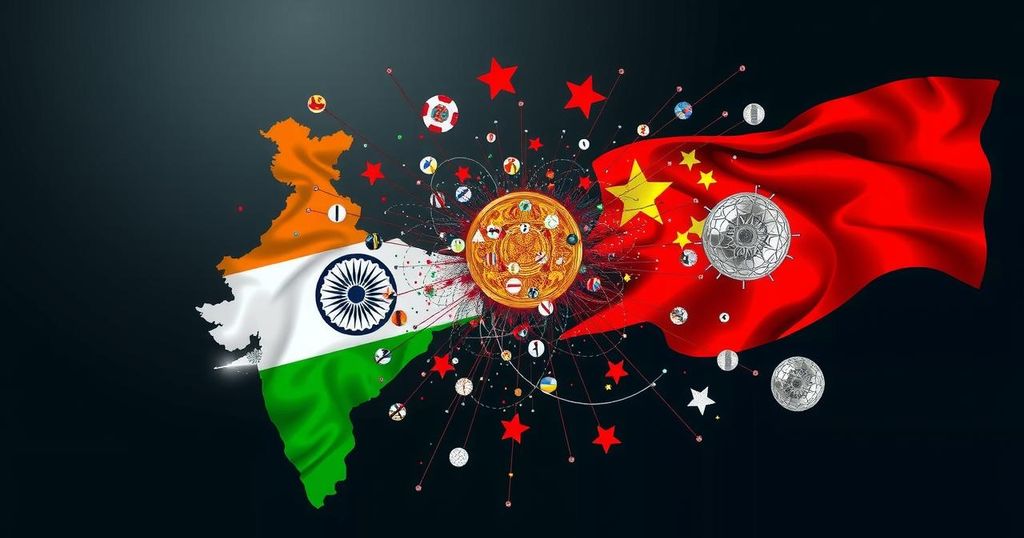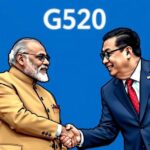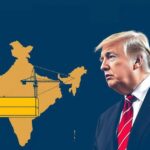Resuming Dialogue: The Cold Thaw in India-China Relations
A senior Chinese official acknowledged the trust deficit in India-China relations during a media delegation from India. Following years of border tensions, both nations express a desire to improve bilateral ties, with discussions centered on resuming direct flights, easing visa regulations, and enhancing cooperation. Recent high-level meetings signify cautious optimism as both sides navigate the complexities of their relationship, emphasizing the importance of de-escalation along the contested border.
In a recent discussion regarding the strained relationship between India and China, a senior Chinese official emphasized the necessity of trust between the nations, indicating that the trust deficit has persisted throughout the last four and a half years due to ongoing border tensions in Ladakh. This sentiment was conveyed to The Indian Express during a media delegation from India visiting China, which marked the first trip of its kind since 2019 amidst the pandemic and border disputes.
Chinese officials expressed eagerness to improve bilateral relations, citing a positive rapport between President Xi Jinping and Prime Minister Narendra Modi, highlighted during their recent encounter at the BRICS summit. Among the initiatives discussed were the resumption of direct flights, alleviation of visa restrictions on Chinese citizens, and the lifting of bans on Chinese mobile applications—moves aimed at normalizing relations that have been strained since the violent clashes in Galwan in June 2020.
The Galwan incident resulted in significant casualties on both sides and instigated a series of restrictions that shadowed diplomatic relations. Recent developments, however, signal an optimistic shift, with engagements between Indian and Chinese foreign ministers and discussions about a phased process of disengagement and mutual cooperation.
Statements from both governments reveal cautious optimism, with India framing the need for visible de-escalation at the border as a prerequisite to further advancements in diplomatic ties. Notably, there is agreement on actions such as resuming the Kailash Mansarovar Yatra, enhancing data sharing on trans-border rivers, and facilitating media exchanges which are seen as pivotal to rebuilding trust.
Further, the meeting between Indian Defence Minister Rajnath Singh and his Chinese counterpart in Laos affirmed the importance of cooperation over conflict. With tens of thousands of troops stationed along the contested Line of Actual Control, the aim is for further de-escalation as a definitive step toward improved relations. This ongoing dialogue underscores the delicate balancing act both nations are attempting to navigate as they seek to mend and strengthen bilateral ties despite the historical tensions.
The relationship between India and China has been significantly impacted by various geopolitical tensions, particularly the ongoing dispute over border areas in Ladakh. This has been exacerbated by specific incidents, such as the Galwan clash in June 2020, which resulted in casualties and a significant military buildup along the Line of Actual Control. Diplomatic efforts have been sporadic, but recent visits by Indian media and foreign ministers suggest a possible thaw in relations as both nations look to stabilize interactions and enhance bilateral cooperation after years of discord.
In summary, the India-China relationship reflects a complex interplay of trust, historical tensions, and recent diplomatic engagements. Despite enduring challenges, there are emerging signs that both nations are willing to resume dialogue and seek improvements through concrete initiatives. The focus on de-escalation and cooperation, particularly following high-level meetings, underscores a mutual desire to navigate the path toward more stable and constructive relations. Both countries recognize that fostering greater understanding and facilitating trade, travel, and cultural exchange are essential for a harmonious future.
Original Source: indianexpress.com








Post Comment